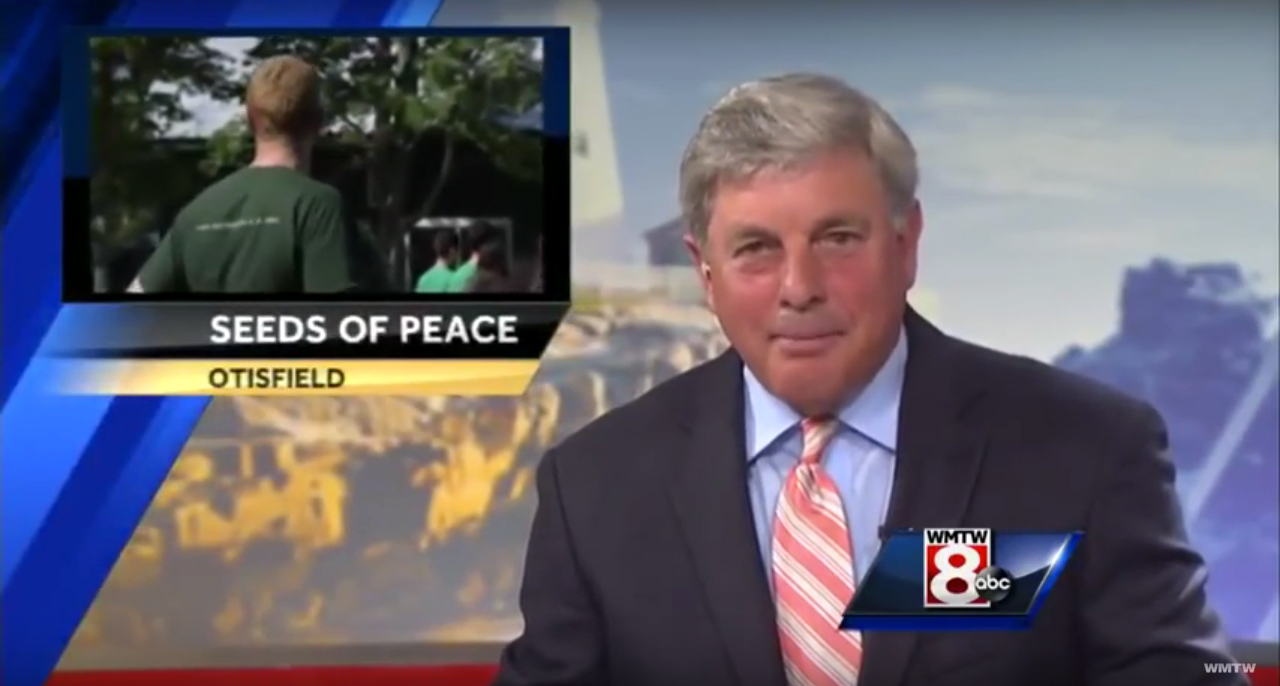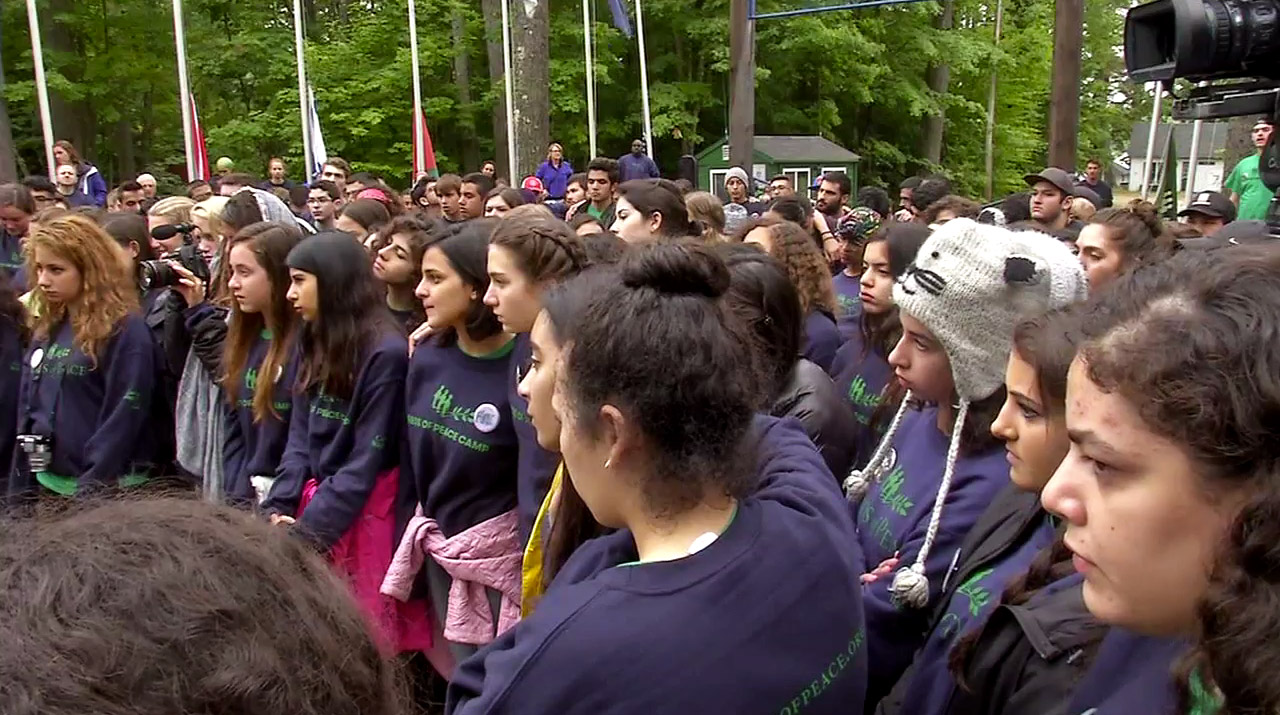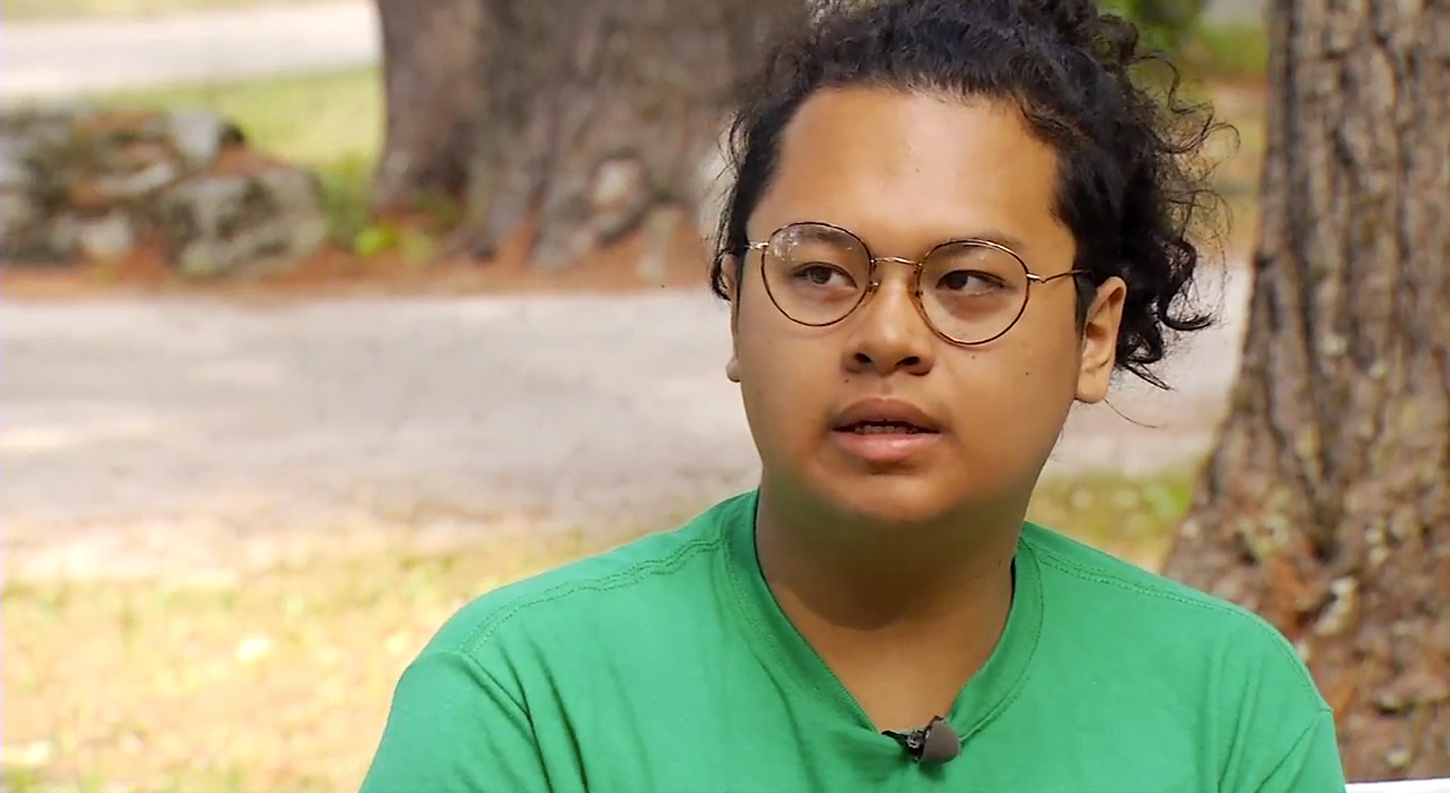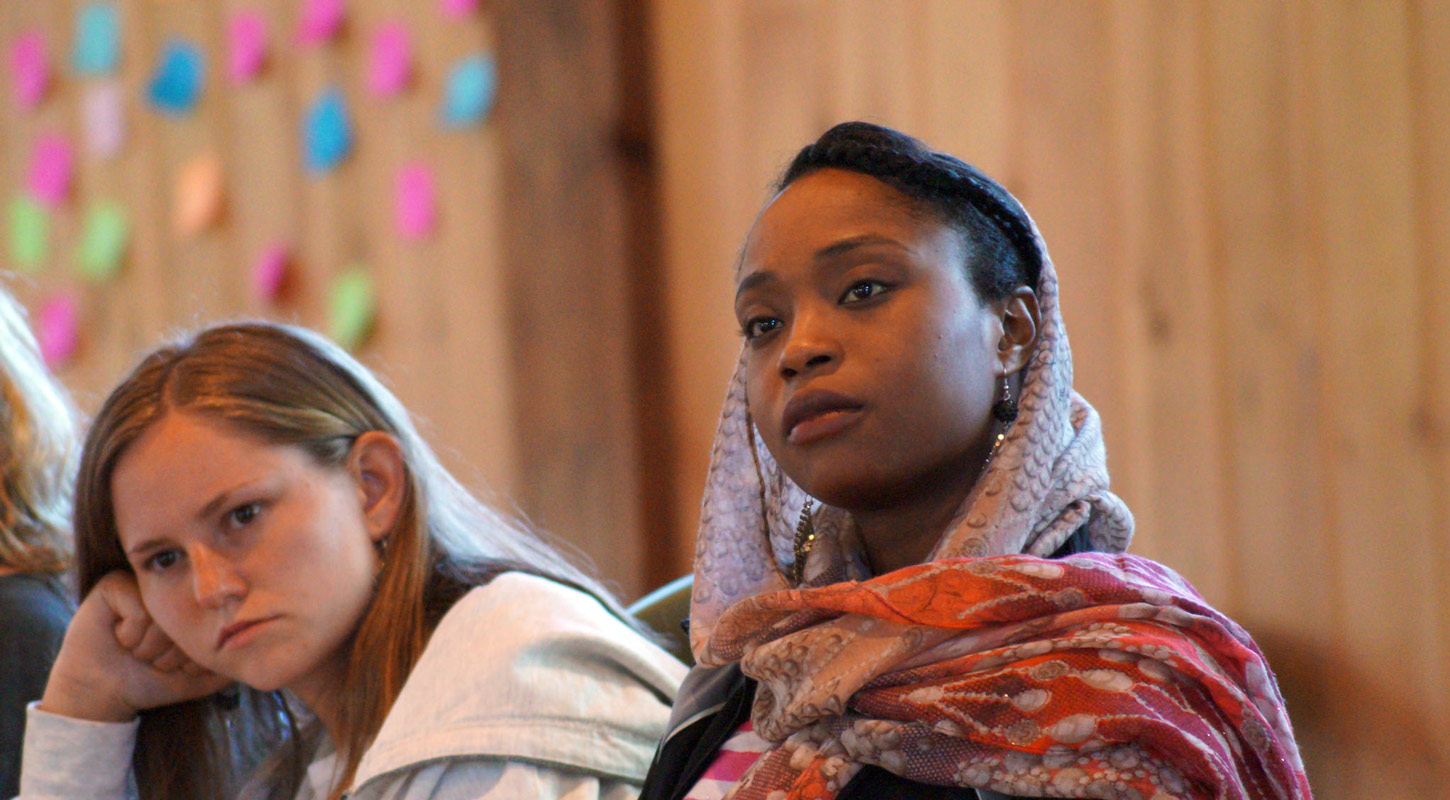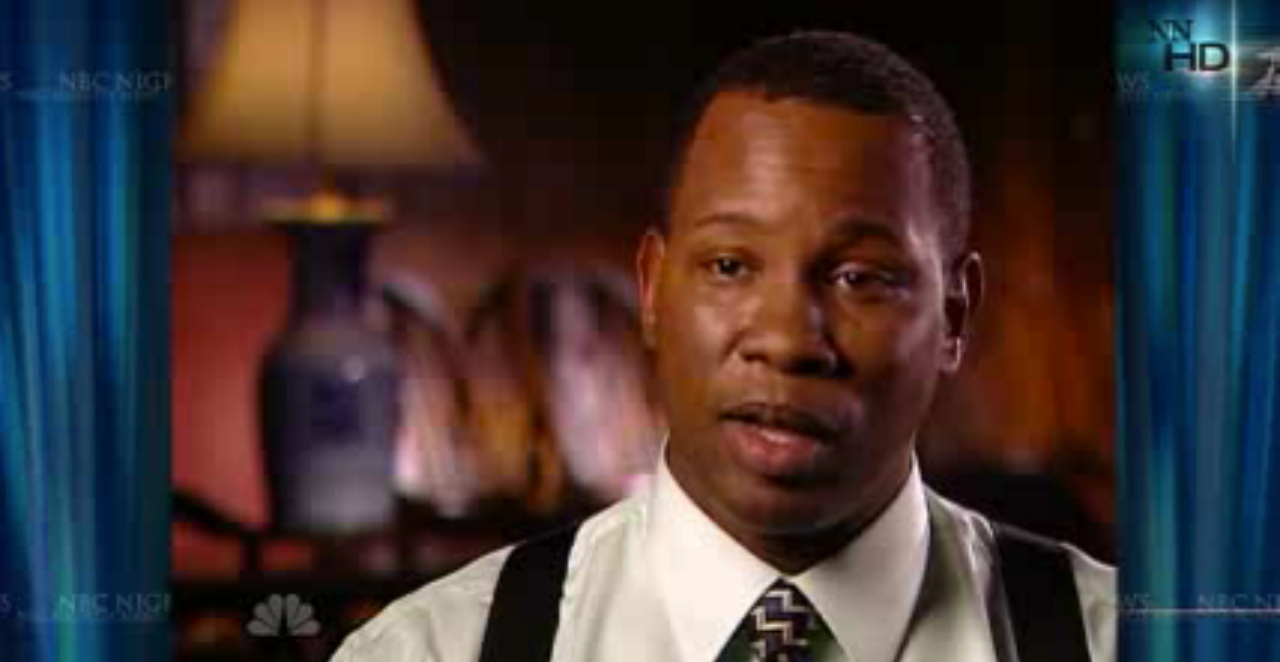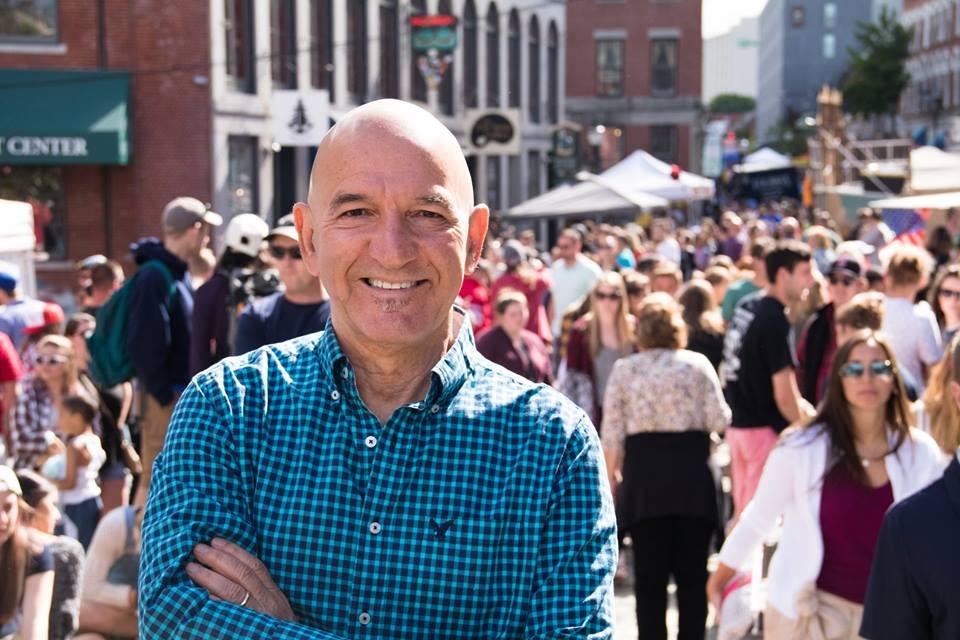Visit part of NBA day
NBA players, including the Boston Celtics’ Marcus Smart and former player Brian Scalabrine, paid a visit to Seeds of Peace camp on Friday.
More than 180 campers from around the world attended the NBA Day event. More than half of the campers are Israeli or Palestinian.
One goal of Seeds of Peace is to have an open dialogue between youth from around the world.
Scalabrine, who is now working as a basketball analyst, has visited the camp before, but he says this year is different.
“What we provide is basically an opportunity for them to have fun for a day and get away from the idea that back in their country there’s a war going on, and we’re not saying that we’re trying to ignore that. What we are saying is that it’s OK to have fun for a day, and here as NBA players, we can be here supporting you and admiring your courage,” Scalabrine said.


